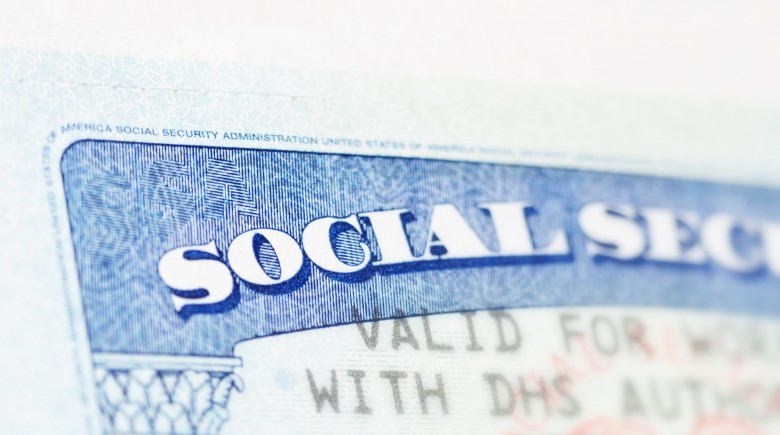Making the decision when you want to retire and start receiving Social Security checks should require some careful consideration beforehand. Starting too soon could drastically reduce your monthly payments, which could prove to be insufficient to enable you to live comfortably. Here are four things you need to help you know when to retire and start collecting your Social Security checks.
Know When You Can Get 100 Percent
It used to be that when you turned 65 that you would automatically get 100 percent of the full amount that you could possibly get. Now, with funding of the Social Security system being less, those who are not yet 65 need to wait between a few more months to about two years longer before they can get 100 percent.
This means that the earlier you take Social Security, the more your monthly payment is reduced. If you do not have other personal savings to draw on or another retirement plan in effect, you are apt to be getting much less than you will need to live comfortably.
Understand the Difference in the Amounts Available By Age
There is quite a difference in the amount of Social Security benefits you are entitled to, depending on the age at which you start. The chart that Social Security uses as an example to show benefits reveals a large difference between getting payments at 62 ($750), and then at 66 ($1,000) (or when you get 100%), and again at 70 ($1,320). As you can see, the difference between starting payments at 62 rather than 66 is $250 per month, or $3,000 annually.
If you need the money to live on, that $250 per month would make quite a difference. If you wait until 68 to start getting Social Security payments, you would get $1,160 per month, or an additional $410 per month more than if you start at 62. Waiting until you reach 70 would give you $570 more. As you can see, the amounts are significantly different, and for someone who has no other income, it makes a lot of sense to wait the few extra years for the larger amount.
Determine How Long You Might Live
Of course, none of us knows exactly how long we will actually live, but there are averages. The Social Security Administration website has a Life Expectancy Calculator. It is a good idea to find out how long someone your age might live, although it might be longer or shorter. Social Security payments are based on average life expectancies, and it is important to realize that you will only receive so much money and then it runs out. They advise that you consider the average lifespan of your relatives because you will want to use that number as an idea of when to start your Social Security payments.
Calculate How Much You Have in Financial Reserves
If you have enough in personal finances to be able to retire without Social Security for a couple of years, then it would be to your advantage to do so in order to get full benefits. Then, once you reach the age where you can get the benefits you want, then you can start getting your Social Security payments.
In addition to your own Social Security payments, your spouse may also be eligible. Calculate when it is to your best advantage for each of you to get full benefits.
Making the decision when you want to retire and start receiving Social Security checks should require some careful consideration beforehand. Starting too soon could drastically reduce your monthly payments, which could prove to be insufficient to enable you to live comfortably. Here are four things you need to help you know when to retire and start collecting your Social Security checks.
Know When You Can Get 100 Percent
It used to be that when you turned 65 that you would automatically get 100 percent of the full amount that you could possibly get. Now, with funding of the Social Security system being less, those who are not yet 65 need to wait between a few more months to about two years longer before they can get 100 percent.
This means that the earlier you take Social Security, the more your monthly payment is reduced. If you do not have other personal savings to draw on or another retirement plan in effect, you are apt to be getting much less than you will need to live comfortably.
Understand the Difference in the Amounts Available By Age
There is quite a difference in the amount of Social Security benefits you are entitled to, depending on the age at which you start. The chart that Social Security uses as an example to show benefits reveals a large difference between getting payments at 62 ($750), and then at 66 ($1,000) (or when you get 100%), and again at 70 ($1,320). As you can see, the difference between starting payments at 62 rather than 66 is $250 per month, or $3,000 annually.
If you need the money to live on, that $250 per month would make quite a difference. If you wait until 68 to start getting Social Security payments, you would get $1,160 per month, or an additional $410 per month more than if you start at 62. Waiting until you reach 70 would give you $570 more. As you can see, the amounts are significantly different, and for someone who has no other income, it makes a lot of sense to wait the few extra years for the larger amount.
Determine How Long You Might Live
Of course, none of us knows exactly how long we will actually live, but there are averages. The Social Security Administration website has a Life Expectancy Calculator. It is a good idea to find out how long someone your age might live, although it might be longer or shorter. Social Security payments are based on average life expectancies, and it is important to realize that you will only receive so much money and then it runs out. They advise that you consider the average lifespan of your relatives because you will want to use that number as an idea of when to start your Social Security payments.
Calculate How Much You Have in Financial Reserves
If you have enough in personal finances to be able to retire without Social Security for a couple of years, then it would be to your advantage to do so in order to get full benefits. Then, once you reach the age where you can get the benefits you want, then you can start getting your Social Security payments.
In addition to your own Social Security payments, your spouse may also be eligible. Calculate when it is to your best advantage for each of you to get full benefits.






